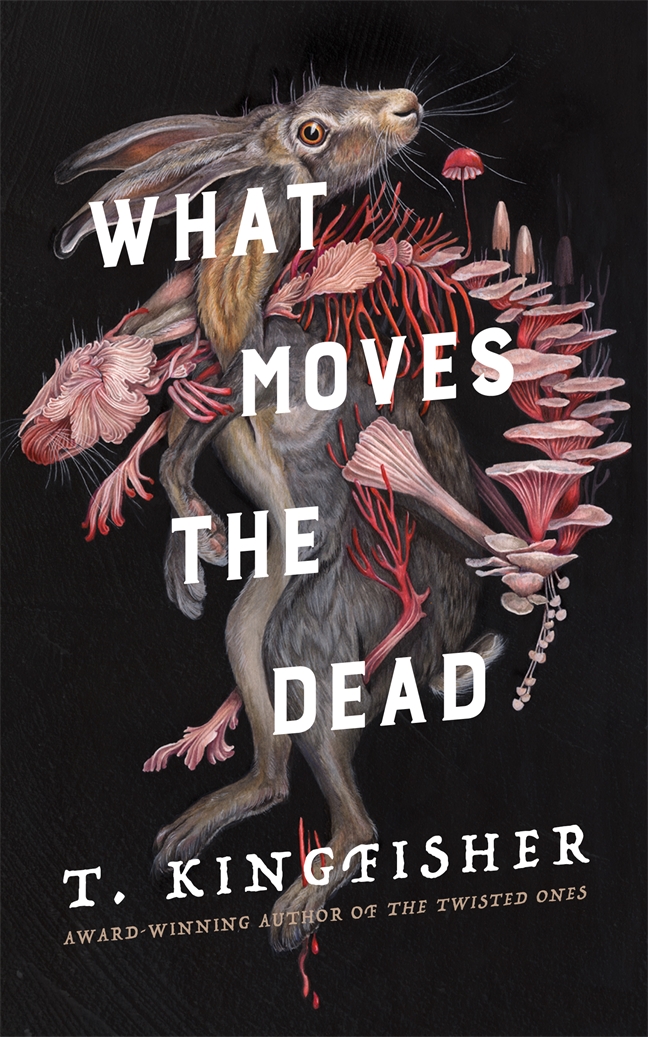- The Good: Gripping and atmospheric fungal horror
- The Bad: An explainable evil
- The Literary: Modern retelling of the “The Fall of the House of Usher”
Alex Easton, a non-binary retired lieutenant in the Gallacian army, receives word that their childhood friend Madeline Usher is dying and rushes to the remote countryside of rural Ruravia. Madeline lives with her brother Roderick in the grand ancestral home of their family.
In this retelling of Edgar Allan Poe’s short story “The Fall of the House of Usher”, Alex finds Madeline a shadow of what she once was, wasted away, hair thin and white, sleepwalking, and speaking in strange voices. Her brother is also suffering from a mysterious malady of the nerves. With the help of a British mycologist and an American doctor, Alex must uncover the secret afflictions of the Ushers.
Kingfisher knows how to generate an atmosphere of horror, which works so well for a retelling of any of Poe’s work. There’s a slow creeping sensation of nightmare, especially surrounding the dark, pulsing lake on the estate. The overall sense of decay in the original work includes a couple of references to fungi, but Kingfisher takes that concept and runs with it.
I also like that the genders of the two protagonists have been tweaked, so that the soldier is non-binary and the childhood friend is the sister instead of the brother. Some time is allotted for explaining the new pronouns, ta/tan, ka/kan, and va/van, which adds a sense of unfamiliarity to the already unsettling subject matter. Kingfisher also does well writing animals and relationships with them, so the addition of a new character of Alex’s opinionated horse Hob is a fun addition.
While I really enjoy this story, it is a retelling of a classic work, so you can’t help but compare it to the original. The original is a masterpiece and bone-chillingly perfect. I like the emphasis in the novel on fungi as the source of the decay, but in my opinion naming the evil takes away from the unknowable horror. Mostly, this is quite enjoyable and a nice modern interpretation, but I just can’t see it holding up to the test of time.
Highly recommended for fans of gothic horror, and modern retellings of historical fiction!
